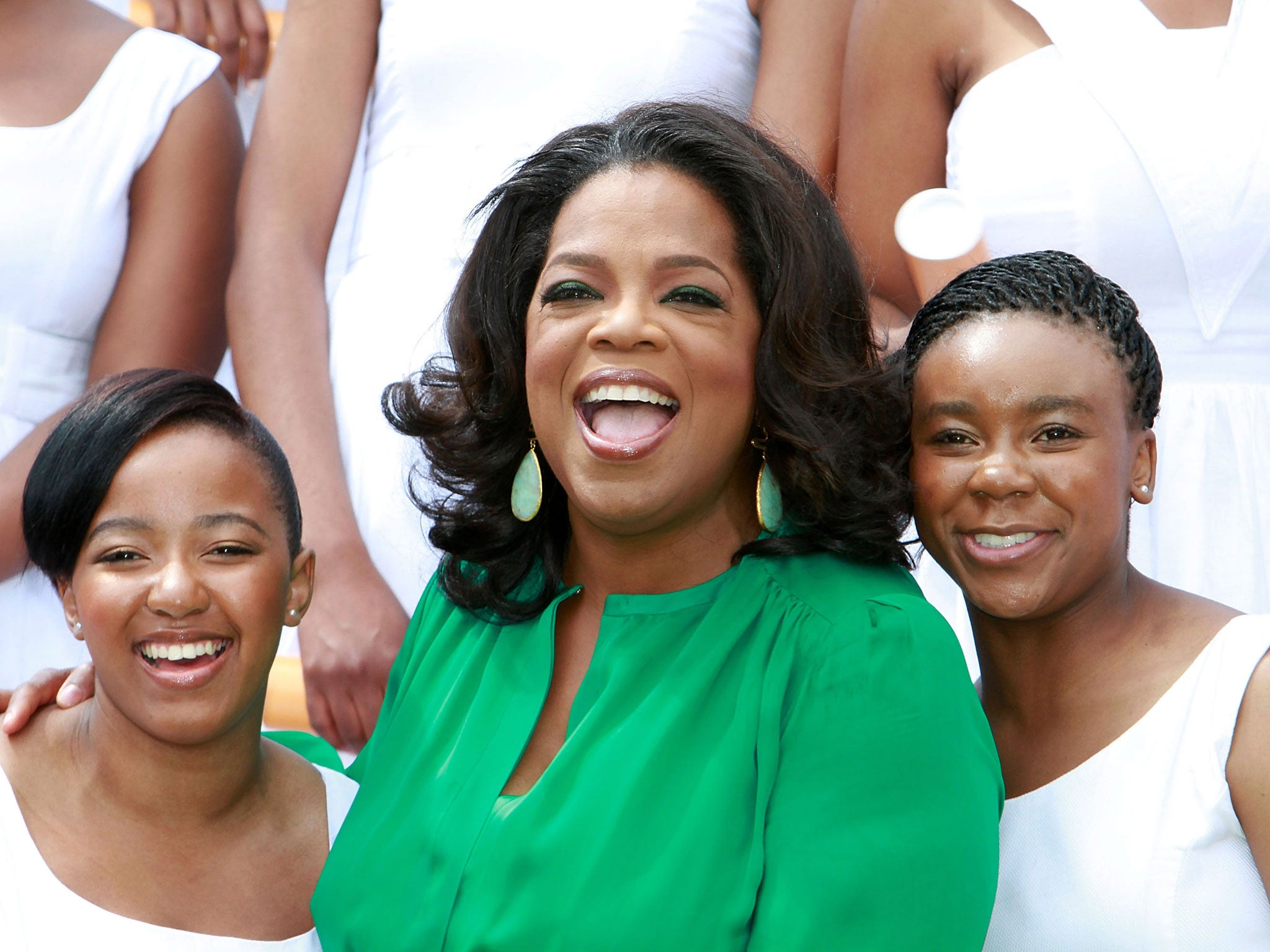Oprah Winfrey the pioneer of television therapy can save Lindsay Lohan - and us too
Therapy culture was never a natural fit with the British, but in briskly rejecting all things self-help-lite, did we overlook the useful aspects of the movement too?

So I was jotting a few things down in my gratitude journal the other day, and after I gave voice to my inner child and boosted my self-esteem with some positive affirmations, I remembered something for which we should all be especially grateful. Oprah Winfrey, talk show host and pioneer of publicly broadcast therapy, has agreed to take the troubled celebrity Lindsay Lohan under her wing.
A spokesperson for Winfrey’s television network, OWN, confirmed a tell-all interview, followed by an eight-part documentary series, just as soon as Lohan cuts loose from her latest stint in rehab. Hooray for Lohan! Personal and professional salvation is as good as hers. And hooray for us too! With any luck, this will be the motivation Britain needs to give therapy culture a second chance.
Towards the end of the last century an industry and attitude originating in America began to take hold over here. Confessional memoirs became the only book genre that could pique a publisher’s interest; previously “thick” or “naughty” children now boasted newly dignified diagnoses and, most galling of all, everyone was encouraged to talk, talk and talk some more, all about their less-than-fascinating fuzzy feelings.
In 2003 sociologist Frank Furedi captured the spirit of the inevitable backlash with a book called Therapy Culture. He made persuasive arguments about how the new compulsion to chat worked only to invent diagnostic labels with no remedy or – worse – flog unnecessary remedies at inflated prices. Since bottling things up has long been a national British pastime, his scepticism found a natural home here. But in briskly rejecting all things therapy-lite, did we overlook the movement’s more useful aspects?
Serious mental illness requires medical intervention, of course, but the tools to tackle everyday dissatisfactions are widely applicable (see above: gratitude journal). Why not use TV to disseminate them and celebrity to draw an audience?
This has always been Oprah’s method and it’s earned her not only millions of dollars, but also legions of fans who credit her with their contentment. That’s not creating victims who’ll overwhelm mental health services with their self-indulgent whinging – in fact, quite the opposite. The focus – if you’ll excuse the therapy-speak – has always been on self-empowerment. And as these programmes are available on TV, it’s a lot cheaper at point of use than your average session with a life coach.
That only leaves the one objection to therapy culture which always underpinned our national resistance: it’s just a bit naff though, isn’t it? Well yes, yes it is. But if it comes down to a choice between misery on patriotic principle and emotional wellbeing for all, I know which I prefer.
Join our commenting forum
Join thought-provoking conversations, follow other Independent readers and see their replies
Comments
Bookmark popover
Removed from bookmarks